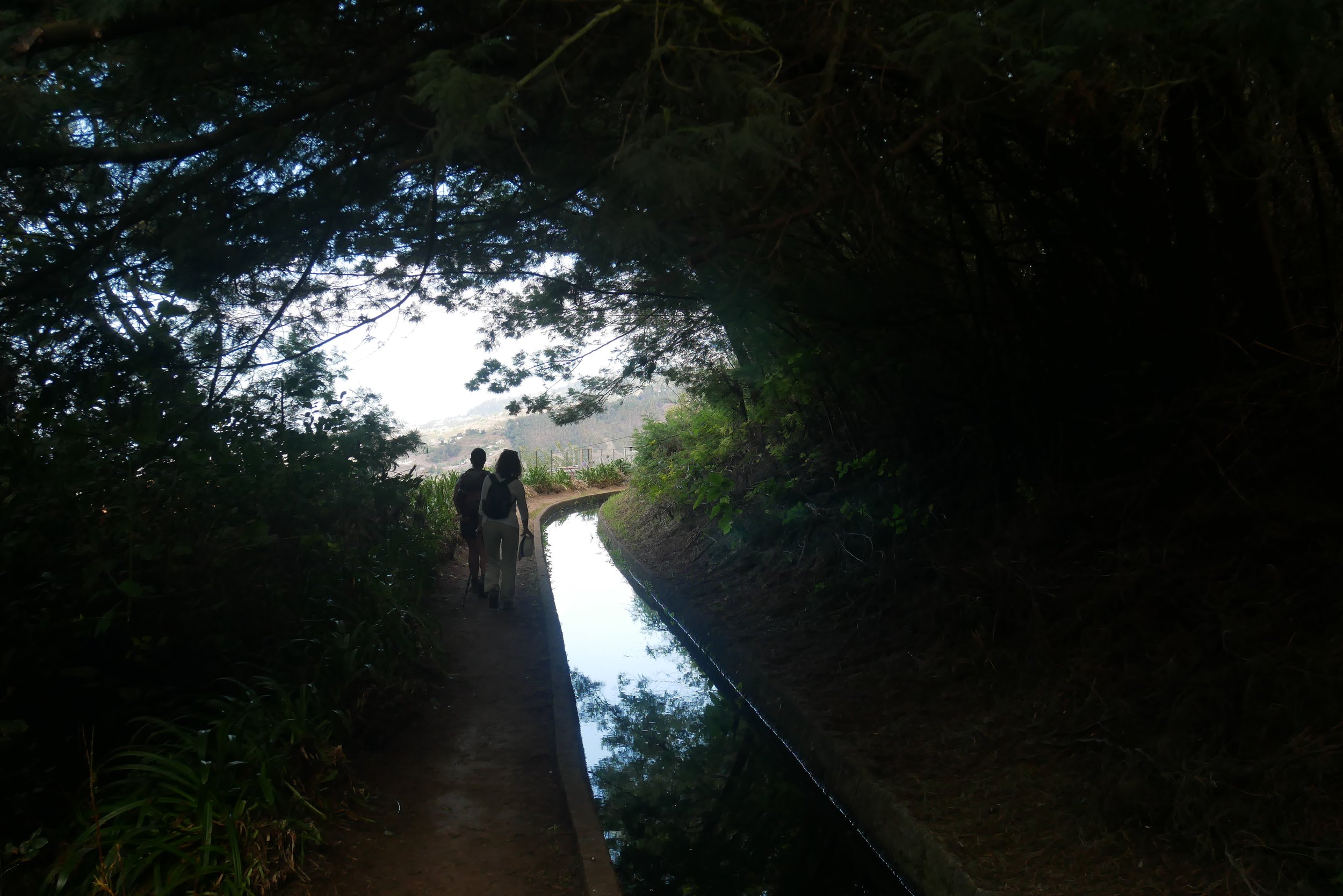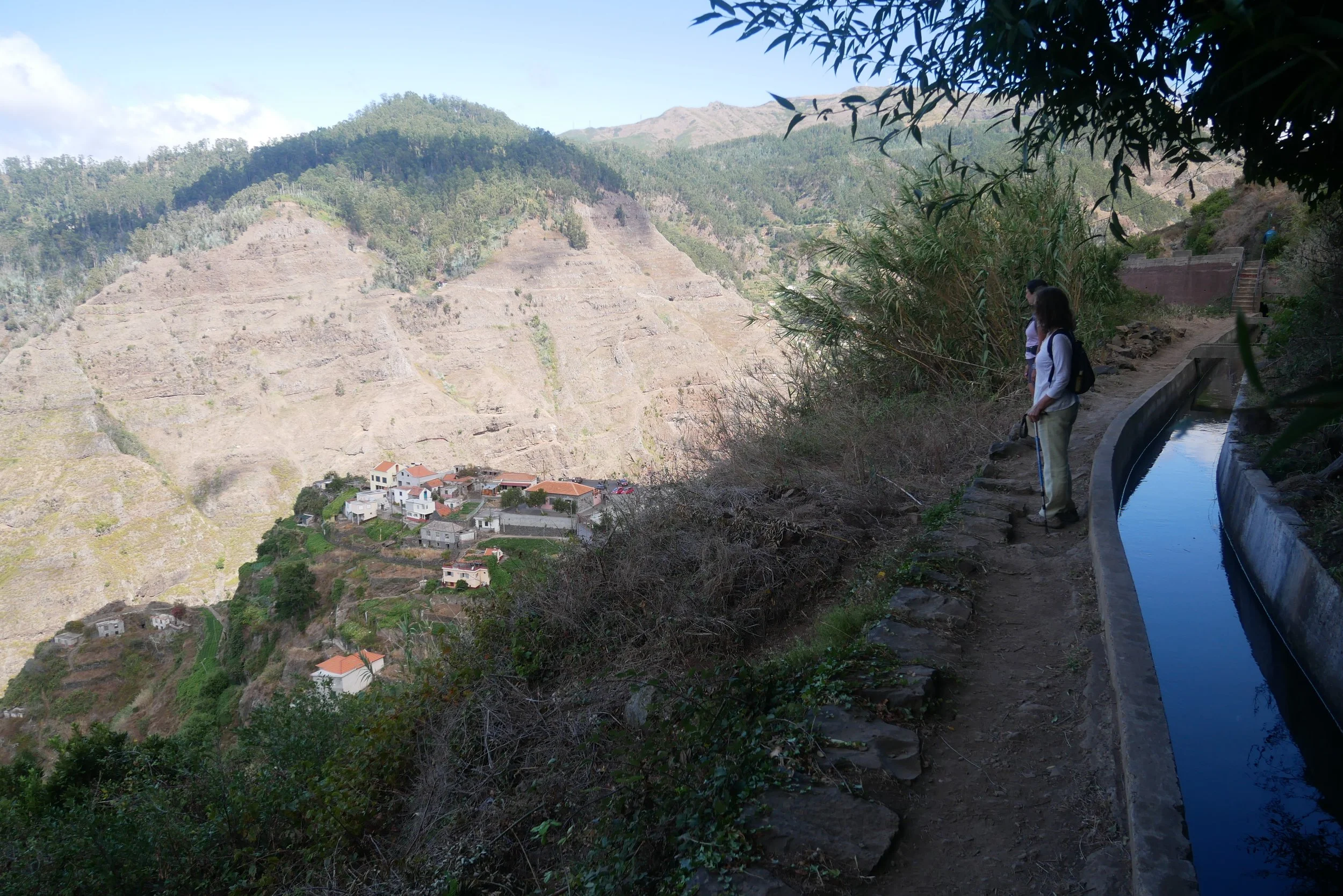Madeira's Atlantic Festival
One of the great things about getting out and about is that you can see how other people do things and perhaps borrow some of their ideas for use at home. It’s an experience I had last weekend when I was invited down to Madeira to witness an event which they call The Atlantic Festival. It takes place each June to celebrate the coming of the summer, and the various events are staged with much style and panache.
So much so, that I spent the three-hour flight back to Bristol Airport thinking what a thoroughly good idea it would be for the South West UK to replicate such a festival. We, after all, are fellow ocean-dwellers. We share the Atlantic with a special group of nations or regions which cling to Europe’s western edges - and celebrating our vast benign, life-giving, temperature-controlling, ocean during the season when it is at its most calm and peaceful seems like a great idea.
If you want to see how such a celebration can be done, book yourself a trip to the island 1500 miles to the south next year. The islanders put on an array of events across the entire month - including all manner of cultural events such as concerts and operas - but the highlight occurs each Saturday night when they stage a massive firework competition in the lovely capital city of Funchal.
The Madeirans love fireworks, and teams from around Europe are invited each year to stage displays on consecutive Saturday nights. The winner is invited to help put on the really big show at New Year’s Eve, said by many to be Europe’s biggest and best annual pyrotechnic event.
Exactly why the good folk of Madeira are so keen on fireworks I have no idea - perhaps it’s something to do with living far out in a vast blank ocean and wanting to leave their mark on the heavens in some way… But, believe me, these shows are no ordinary firework displays - they are bigger, more dramatic and general grander than anything I have witnessed in the UK. Indeed, the Madeira International Firework Competition doesn’t even talk about “displays” - it refers to these explosive events as “pyro-musical shows”.
Teams set up their fireworks on a quayside out in the bay in front of Funchal and some 10,000 people or more gather around the harbour-side to watch all the fun. There are all manner of booths and stalls selling delicious Madeiras food, snacks and drinks and there’s a preliminary extravaganza featuring music, dancing or whatever. Last Saturday it was an amazing 45-minute “Circus Art Show” - an avant-garde performance featuring contemporary dance, acrobatics, percussion and circus acts… I’m not really one for contemporary dance, but even I was entranced by the performance, which must have cost a fortune to stage. I mention this because all the entertainment is totally free.
If you’re a firework lover, then the display alone is worth the airfare from Bristol. Which, by the way, is pretty much affordable nowadays, added to the fact that aeroplanes have got faster meaning the flight down to Madeira can nowadays take just a little over three hours.
What’s not to like about an island rich in British connections 1500 miles to the south? Not much. I absolutely love the place and would happily live there if I wasn’t addicted to my Exmoor homeland.
Western Morning News & Western Daily Press
Why? For many reasons, but you have to begin with the island’s sheer physical beauty. It might be relatively small, but Madeira is hugely grand - with mountains climbing more than 6000 feet straight out of the ocean. Indeed, the island very few flat areas, with the exception of one large, rather strange and mystical, high-altitude plain which sits nearly 5000 feet above the ocean. It is the birthplace for many of the famous “levadas” - small irrigation canals many of which were created hundreds of years ago so that islanders could capture water up inn the heights to water their sun-baked farms way down below.
To my mind these gravity-defying waterways are one of the wonders of the Western World - exactly how they engineered these little canals along impossible contours and across open cliff-faces, defies the imagination. They ensure the farmers have plenty of water, but they also provide walkers with the most amazing opportunity to enjoy scenic mountain hikes with panoramic views of the ocean, without the need to make lung-bursting climbs or knee-straining descents.
Choose your ‘levada’ - either high above the busy southern half of the island or towards the much emptier, steeper and rainier north - and you can stroll for miles along the paths which accompany each tiny canal. Madeira’s vast levada network spans a staggering 2,000 miles on an island that measures just 35 long by 14 miles wide, so you are spoilt for choice. My advice, though, would be to join one of the many guided walks - not all levadas are the same and some will take you to some vertiginous and perilous places.
Other guided hikes will take you along one of the old “royal paths” - an extraordinary network of cobbled trails built by the decree of a 19th century Portuguese king who realised that his island subjects required an alternative transport system to the coastal boats which used to be the only link between communities. Although these routes were designed as simple pathways for people or for oxen-drawn sledges, they represent incredible feats of engineering. And many demand a good head for heights - like the one I did (the Caminho Real do Paúl do Mar) from a village perched almost vertically 1800 feet above a small harbour.
The cobbled pathway zig-zags its way down an extremely steep gorge and, like I say, you really do need a good head for heights. But the one-and-a-half hour hike does give you some idea of how the folk of this island must have lived before the invention of the internal combustion engine. The cobbled trail not only bears witness to the amazing amount of hard work it must have required, it also shows you how incredibly strong and fit the folk of yore must have been. I have a theory that over many generations Madeirans must have evolved stronger leg muscles and bigger lung capacities by carrying heavy loads up and down these vertiginous paths. It was enough for me to go down that 1800 foot route, I’d have struggled climbing back up carrying nothing more than a mobile phone, let alone a heavy load.
It’s when you get out and about in Madeira that you begin to see why they might love to celebrate the coming of summer. Celebrate anything, in fact. I am told that the Madeirans are great ones for any kind of party or festival.
And why not? For centuries, life must have been very tough indeed for a people who knew only the world of the steep lung-bursting mountain slope and of the wild and dangerous ocean. The fact that we, as modern day tourists, can go to the beautiful island and join their celebrations is a privilege. And a highly enjoyable one, at that.
FACT FILE
Martin visited the island as a guest of Madeira Tourism - to find out more visitmadeira.com/e
To learn about events such as the Atlantic Festival visit - visitmadeira.com/en/whats-on/event
Direct flights to Madeira from the South West:
Bristol – Madeira
Operated by Easyjet
Weekly frequencies – Mondays, Thursdays & Saturdays
June 2024 until June 2025
Bristol – Madeira
Operated by Jet2.com
Weekly frequency – Mondays
June 2024 until December 2025
Bournemouth – Madeira
Operated by Jet2.com
Weekly frequency – Thursdays
May 2025 until December 2025




















